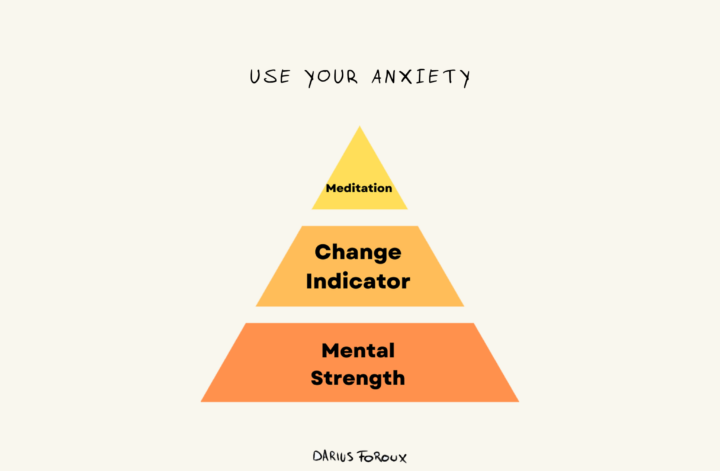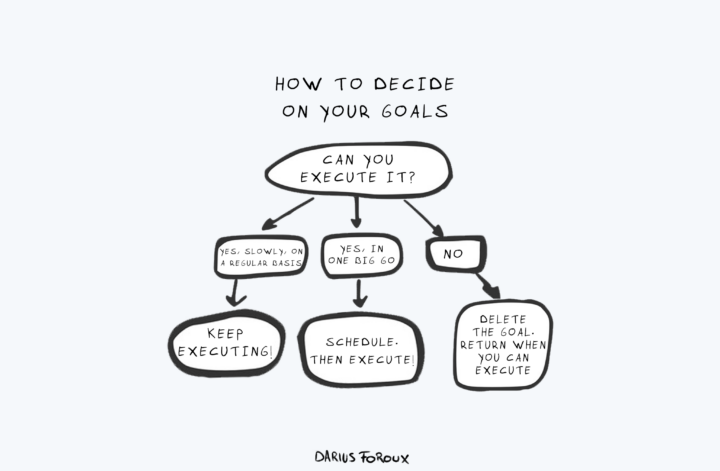I started intermittent fasting three years ago. It can be effective, but it’s not the magic pill that everybody pretends it is. There are various methods of fasting, like ADF fasting (Alternative Day Fasting), and none of them should be used as a generic fasting solution.
The promise of intermittent fasting goes like this. Only skip your breakfast and get the following benefits:
- Lose weight
- Build muscle
- Feel better
- Decrease the probability of getting cancer
- Improve your brain
- Lower your risk of type 2 diabetes
And to make things even more attractive. You can get all those benefits by eating whatever you want.
I must admit, the benefits look great on paper. And for the past few years, intermittent fasting has received a lot of positive attention. People present it like a silver bullet.
But I’m not that positive. I simply don’t believe in solutions that offer magical results. I’ll tell you why I’m skeptical in a minute, but first, let me explain my experience with intermittent fasting.
Why I Started
In 2013, BBC journalist Dr. Michael Mosley published a book called The Fast Diet. The book was preceded by a documentary Mosley released in 2012 about intermittent fasting called Eat Fast, Live Longer.
I’m always interested in trying new things to improve my life. And when intermittent fasting appeared on my radar, I was attracted to it because of the simplicity.
One of my goals is to live a simple life. I don’t like to take things too seriously. That’s why you will never see me weighing my food, counting calories every day or being meticulous about my workout schedule.
When it comes to health, I systemize everything. Every now and then, I take the time to think through my habits, and then I make up rules that simplify my life. For example, one of my rules is to exercise daily for at least 30 minutes.
I no longer have to plan my workouts. I just go every day. When it comes to my breakfast/lunch, there are only a few things I eat daily:
- Eggs
- Cheese
- Broccoli
- Chicken or ham
- Avocado
- Nuts
- Hummus
- Kefir drink
- Fruit (oranges, blueberries, or strawberries)
My first meal is always a combination of the above. I don’t eat all that stuff at the same time and I play around with this list a lot. But I haven’t changed the ingredients for 2 years. It also makes my grocery shopping a breeze.
Intermittent Fasting Is An Eating Pattern—Not A Diet
One thing I always stress is that intermittent fasting is not a diet. The above list of food is what I eat (my diet). Intermittent fasting just tells me when I eat.
I usually eat my first meal around 12 PM, hit the gym around 3 PM, and have dinner between 6 PM-7 PM.
Before my workout, I often eat a banana. Or, if my first meal wasn’t big, I eat a peanut butter sandwich. After my workout, I sometimes take a protein shake or eat some nuts.
That’s my eating pattern. It’s about a 17-18 hour fast (from 6PM-7PM until 12PM the next day). It looks like this:

My Results
I’m 6”3 and when I started, I weighed 82 kg (180 pounds). Within a month, I lost 4 kg (9 pounds). That wasn’t my goal because I was already lean. In fact, I felt like I lost muscle mass.
My strength didn’t change, though. I did lose weight. The reason is simply because I consumed less calories. When you eat two meals, it’s common sense that your intake is lower.
I just can’t stuff myself because it makes me feel low in energy. Some days I would eat a lot at noon, and I would be drowsy all afternoon. For a few days, I ate so much that I couldn’t even work out.
Intermittent fasting is not that easy. You have to establish the right balance. That brings me to why I don’t think it’s a magic pill.
Intermittent Fasting Is NOT For Everybody
Intermittent fasting fits well into my life. I’m not an early riser and I love to eat big meals. So the main benefit for me is that it makes life easy. But that’s not true for everyone.
One of my friends who’s a physiotherapist wakes up at 6 AM every day, works out, and then starts work at 8 AM. He tried
Hence, this is not for everyone. You must look at your lifestyle and how your body responds. Just because it works for a lot of people, it doesn’t mean it’s for everyone.
For me, it’s been mostly good. For example, I initially lost weight, which I didn’t want. And even though I like big meals, sometimes I got a food coma, which isn’t good for your productivity. But I stuck with it and found a balance that worked for me. I added 2 kg (4 pounds) to my weight and now my weight has been steady for more than a year.
But if I wanted to add muscle, I definitely would not choose intermittent fasting. Why do I still do it? It makes my life simple and it doesn’t have negative effects.
If intermittent fasting and skipping breakfast was harmful, I wouldn’t do it. I don’t care about all the “benefits” because I don’t believe in that nonsense. The human body is complex. Someone could start with intermittent fasting and eat junk food during the eating window, would that make that person healthy?
Genetics play the biggest role when it comes to diseases. After our genes, things like our diet play a role. I think we have this false sense of control. We think we can change our health with things we control instead of accepting our natural tendencies.
That doesn’t mean we can’t influence our health. I stick to food that’s low in saturated fat and salt, and I don’t consume alcohol. I also avoid processed food as much as I can. And I make sure I don’t over-consume. That gives me more energy but I never assume I won’t get diseases or injuries.
You Need What YOU Need
The reason I wrote this article is to share my thinking method with you—not to tell you what’s healthy or not. I always do what works for me. I do my research and avoid things that are harmful. And I don’t take things too seriously. That’s also the key to living a good life and building a good career.
Other than that, you can experiment with eating patterns, exercise plans, and diets. The only thing you need to do is to give your body what it needs. No matter what health freaks tell you, they don’t know your body.
Watch yourself closely. And know yourself. Think about this:
- How much sleep do you need?
- What food makes you feel bad?
- What type of exercise injures you?
- What eating pattern simplifies your life?
When it comes to our health, most things are common sense. You probably already know what you need to do to feel good. And you also know there are no magic pills. Being healthy requires hard work and constant adjustment. I’m always open to new things and never cling to ideas.
If someone gives me a better alternative for intermittent fasting, I will try it tomorrow. I’m not invested in these ideas. I’m only invested in my own health.




